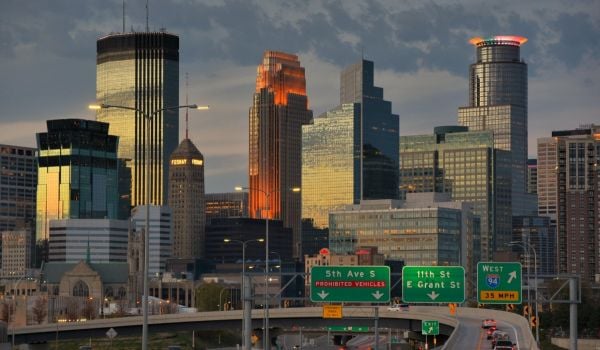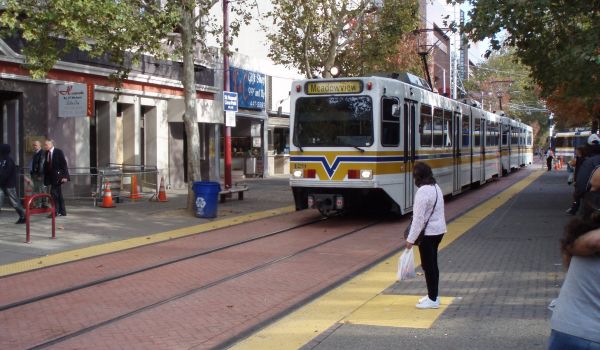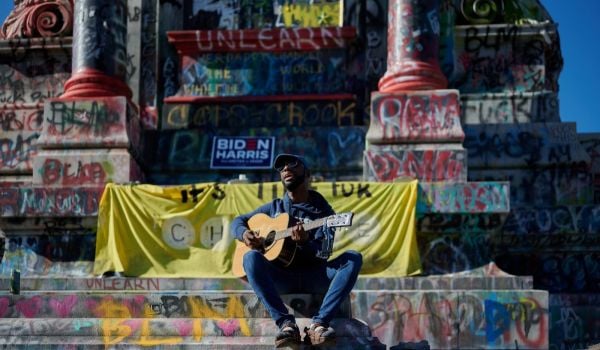In the first three months of 2017, Washington, D.C.’s Metro logged 20 “significant” fire incidents. That’s considered good news for the beleaguered transit system, which had 27 significant fire incidents in the same period the previous year. Beyond the fires, Metro has poor on-time performance, is facing serious budget shortfalls, and remains one of the most expensive transit systems in the U.S. It’s little wonder Metro recently hit its lowest ridership levels in a decade.
As Metro works to repair its aging infrastructure and improve its safety record, a new group of activists is pushing to give Metro riders a stronger voice. Americans for Transit (AFT), a national nonprofit created by the Amalgamated Transit Union (which represents over 9,000 Metro workers), is working to organize a transit riders advocacy group to fight for better fares, service quality and more.
“Given the climate for public transportation in this region right now — fare hikes, service cuts, chronic underfunding — it’s a great opportunity to build a rider advocacy organization. We know that in cities with strong advocacy groups, public transit does better,” says Siggy Meilus, AFT executive director. Prior to moving to D.C., Meilus was an AFT organizer who worked on a successful campaign for free transfers and longer evening service hours in southeastern Massachusetts.
The organizing effort in D.C. is still young. AFT began initial outreach about six months ago and formed the riders group just two months ago. In talking to riders, Meilus says they heard common refrains: The system is unreliable; it’s too expensive for working people; it’s unsafe.
As a starting point, AFT is organizing around flat fares, free transfers and extended service hours. Whereas New York, Chicago and Atlanta have flat fares, Metro’s fares vary from $2.25 to $6 depending on the length of your trip. In D.C., bus to bus transfers are free, but train to bus changes are not.
“In advocating for those goals, there’s room for riders to also work on other issues that are important to them. Whether that be a specific bus route or train line that could be improved or certain communities wanting to work on being less targeted by local police for fare evasion,” Meilus says.
Ultimately, the goal is to create a group that operates independently of AFT. But Meilus and colleagues recognize institutional support — aka paid staffers — and organizing experience can be essential for getting things rolling with a new group of activists. “Even reserving rooms and sending out emails and keeping people coordinated takes a lot of time and effort,” Meilus says. “Your average bus rider has a full-time job and a family and hobbies and doesn’t necessarily have the time to keep that full-time organizing going.”
A recent previous effort to create a Metro riders group is perhaps evidence of this. The WMATA Riders Union formed in fall 2015 with a mission of improving conditions for Metro users. The group raised over $4,500 through GoFundMe to support their efforts. But after only six months, conflict between the founders derailed the group.
Metro has had an official Riders Advisory Council since 2005. The 21-member group is made up of riders from D.C., Maryland and Virginia and makes recommendations to the Metro board. But the council does not engage in the sort of protests, picketing and activism sure to come from AFT.
Riders unions are not uncommon. Groups from San Francisco to Boston to Milwaukee to New York have formed to advocate for fair fares and better service. Many of the organizations have a social justice angle to their work. The Seattle Transit Riders Union has become a prominent political player fighting against service cuts and for new funding streams and, most recently, serving as the organizing force behind Seattle’s income tax on the wealthy.
“Public transit gives people access to physical mobility, upward financial mobility and allows people to live fulfilling lives,” says Meilus. “We’re trying to make sure the people most often left out of the conversation are being built up and taking a leadership role in decision making.”

Josh Cohen is Crosscut’s city reporter covering Seattle government, politics and the issues that shape life in the city.
Follow Josh .(JavaScript must be enabled to view this email address)




_600_350_80_s_c1.jpg)











